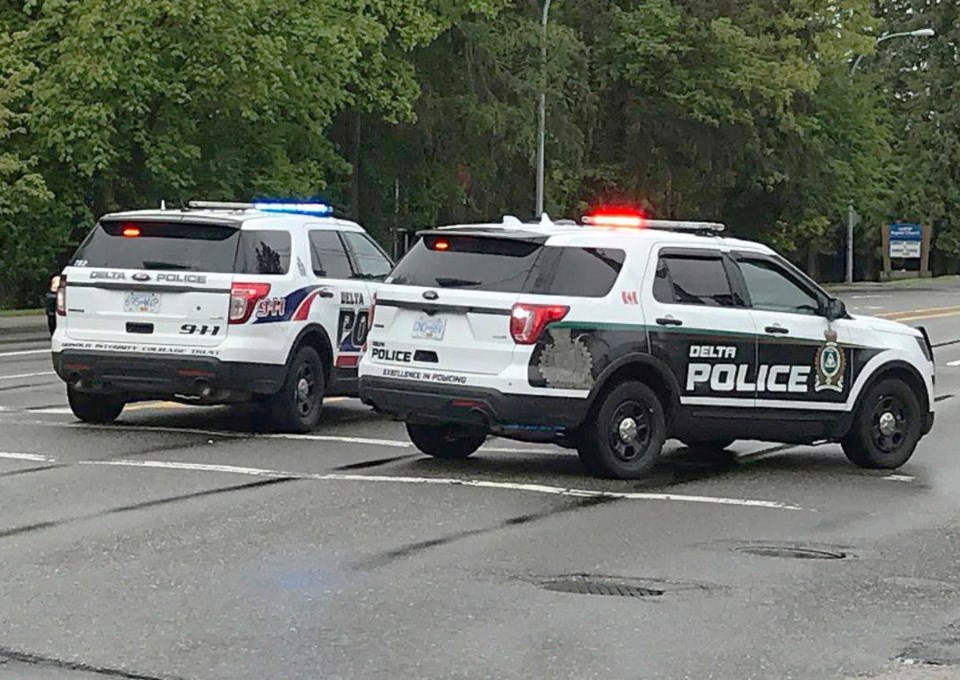“My comment is Delta is doing fine, leave us alone.”
That’s what Mayor George Harvie had to say during the May 18 meeting of the Delta Police Board during discussion on the Special Committee on Reforming the Police Act’s recently released report, containing a series of recommendations for overhauling policing and community safety in the province.
The recommendations include the establishment of a new Community Safety and Policing Act as well as a provincial police agency that would be governed by the act.
It would mean replacing the RCMP but what’s not clear is how it will impact municipalities that have their own police forces including Delta, said Harvie, who chairs the police board.
Harvie noted the report is vague and doesn’t have a specific mention of police forces being regionalized, but indicates a sharing of resources which could mean Delta taxpayers could end up paying costs of other departments.
“Keep your hands off our Delta police force,” he later added.
Noting police chiefs are asking for more information, Delta Police Chief Neil Dubord told the board certain services could end up being regionalized.
How that would happen and where the province would start is unclear, he noted.
A report to the police board said one of the priorities identified by the committee includes “amalgamating police services on a regional basis where there are opportunities to address fragmentation, ensure equitable access to policing and public safety, and improve efficiency and effectiveness.”
Dubord said Delta is already “well ahead of the curve” when it comes to enhancing its policing model including being the first in B.C. to have a Community Safety and Wellbeing Plan.
The report to the board notes Delta performs “excellent” in resourcing comparison.
The Ministry of Public Safety and Solicitor General publishes an annual report on police resources with data for all municipal police departments and RCMP detachments.
That report allows Delta Police to compare itself with the provincial context of resources including population to police ratio, crime rates, caseload and overall funding.
As in previous years, due to differences in funding models between municipal police departments and the RCMP, Delta is compared only to its independent counterparts.
The average cost per capita for all municipal departments is $419, with Delta being well below the average at $368. The average crime rate for 2020 was 63, with Delta falling significantly below the average with a rate of 41.
The related case load per officer in Delta is also lower than average at 23 cases per officer, compared to 36 on average.
Dubord said that because Delta is a different than other communities, the police workflow is different and more pro-active, while the size of the force hasn’t been reduced.
He added Delta Police will work hard to provide input on whatever committees are formed on how to implement the various recommendations.
The report notes the committee members recognize the need for ongoing review and oversight with respect to policing and public safety, recommending the establishment of an all-party select standing committee.
The committee would, among other things, oversee the implementation of the recommendations, conduct regular reviews of the new Community Safety and Policing Act, as well as work with First Nations governments and key partners to address systemic racism in policing.




